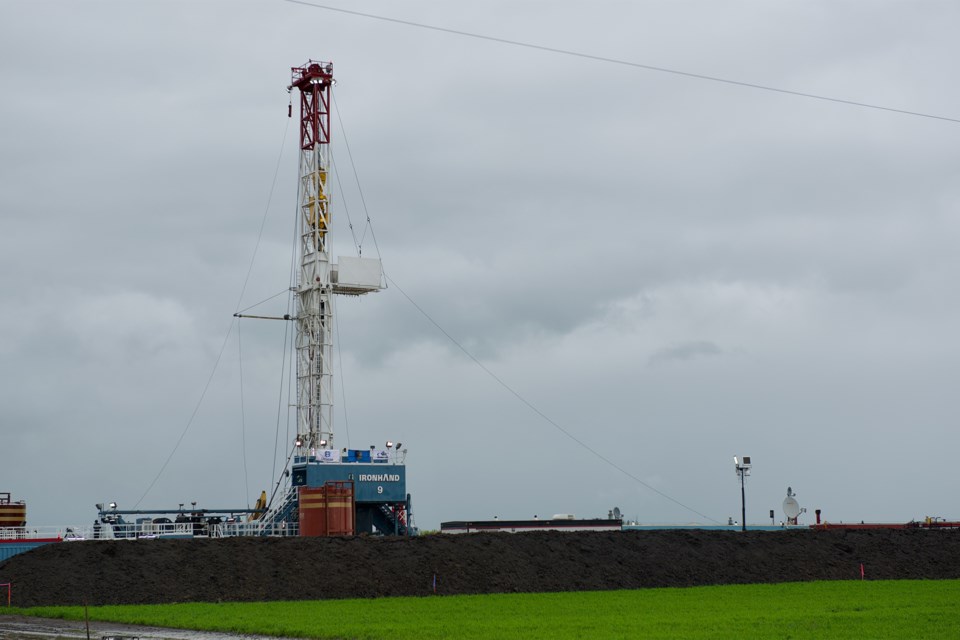OLDS — A lithium drilling test project run near Torrington for Calgary-based E3 Lithium Ltd. last year was so successful that more work is anticipated this fall, possibly leading to the creation of a production facility in 2026.
If that all happens, E3 chief executive officer and founder Chris Doornbos predicts about 160 jobs could be created by the company across the province, half of which could be in the Olds/Red Deer area.
Lithium is a key ingredient in batteries, especially for electric vehicles (EVs), but also for cellphones, computers and other products.
It can be found in the Leduc aquifer (an underground lake or river) that also produces oil and gas and extends into central Alberta.
E3 Lithium has developed a process to extract lithium from brine then getting it to the ultra-pure point required to make batteries.
It plans to partner with other companies that will utilize its lithium product to create the batteries.
In late June, a contractor began drilling a test well northwest of Torrington on E3’s behalf.
“(We) found lithium in the brine from top to bottom. I mean, obviously we expected it to be there. But the confirmation of that? Obviously very important,” Doornbos said during an interview with the Albertan.
“And not just that it’s there, but that it’s consistent. Because what it means is the operation of the plant is going to be very simple if the feedstock you give it is the same at all times.
“And right now, we’re seeing that the brine chemistry -- not just lithium, but everything – is very similar across the aquifer, which means that we can build a plant with tighter tolerances which means it’s a simpler design. So that’s important too.”
Between now and 2026, the plan is to do a bit more testing, then create a pilot plant -- likely in the Olds/Red Deer area to test out the process of efficiently making a lithium product that can become part of an EV battery.
“It’s the field validation of our technology,” Doornbos said.
“It’s fundamental to our success, because if it works in a live hole with live brine coming out of the aquifer directly, then the likelihood of it working in a big commercial plant is very, very high, so it gives us the confidence we need to go build that big facility.”
That big commercial facility is the one that is anticipated to begin production in 2026.
At the end of November, it was announced that the federal government is providing $27 million to E3 Lithium via the Strategic Innovation Fund’s Net Zero Accelerator Initiative.
The money is slated to go toward construction of that lithium production demonstration plant. A federal government news release pegged the cost of that pilot plant at $87 million.
Doornbos said that cash injection from the feds is very helpful because it “derisks” efforts to obtain capital for the company.
“I think it enables us to move quicker,” he said. “Hopefully we’ll see lithium, commercial lithium operations in the area sooner.”
When the first production plant is built – likely in the Olds-Red Deer area -- the jobs that would be created would not only be for drillers, but also construction workers of all kinds, from welders to drywallers.
When the plant opens, it will have plant operators, maintenance workers and office personnel. It’s expected to run 24/7 on two shifts.
Doornbos said the potential for the company is sky high, because currently, the demand for lithium is strong.
Also, where there are oil and gas formations there’s lithium. It’s also a byproduct in the production of potash, a main ingredient in fertilizer.
Doornbos anticipates production will last for about 50 years.
And because the company will be drilling for it, it’s a great fit for former oil and gas well drillers.
He also said E3 is not the only company getting into this field. However, others don’t have properties near Olds.
“If we’re successful, honestly, like this one plant, this one first one that we’re building, it’s just the start of the lithium industry in Alberta,” Doornbos said.
“E3, like I said, can expand probably 10 times bigger than that first plant.
“Alberta could become one of the biggest lithium jurisdictions on the planet.
“So this is what I’m saying. Like, lithium is the oil in Alberta, right? We have a huge opportunity to be a major player in the world.”



